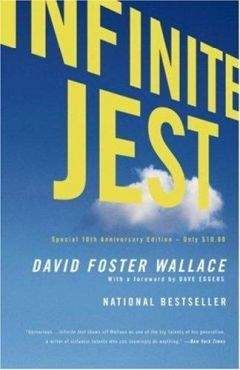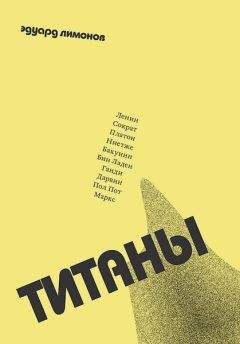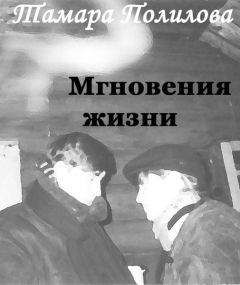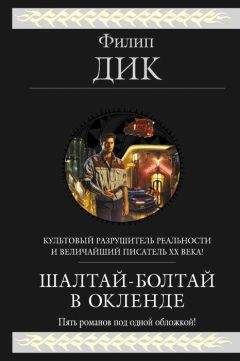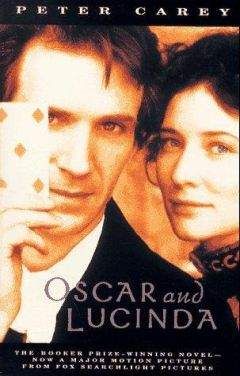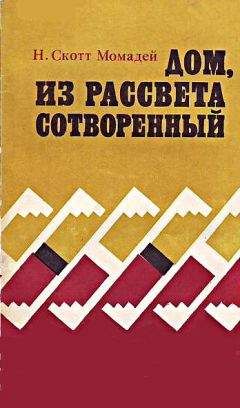Lars Iyer - Spurious
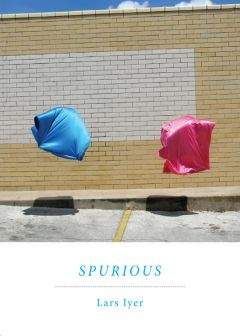
Скачивание начинается... Если скачивание не началось автоматически, пожалуйста нажмите на эту ссылку.
Жалоба
Напишите нам, и мы в срочном порядке примем меры.
Описание книги "Spurious"
Описание и краткое содержание "Spurious" читать бесплатно онлайн.
In a raucous debut that summons up Britain's fabled Goon Squad comedies, writer and philosopher Lars Iyer tells the story of someone very like himself with a "slightly more successful" friend and their journeys in search of more palatable literary conferences and better gin. One reason for their journeys: the narrator's home is slowly being taken over by a fungus that no one seems to know what to do about.
Before it completely swallows his house, the narrator feels compelled to solve some major philosophical questions (such as "Why?") and the meaning of his urge to write, as well as the source of the fungus… before it is too late. Or, he has to move.
Whole religions have formed around less, I tell W., around damp, and the source of damp.
W. sends me some quotations from the Talmud.
Seven things are hidden from men. These are the day of death, the day of consolation, the depth of judgement; no man knows what is in the mind of his friend; no man knows which of his business ventures will be profitable, or when the kingdom of the house of David will be restored, or when the sinful kingdom will fail.
W. likes lists, he says. It’s a Borges thing. — ‘This quote is especially for you’, he says:
Proselytes and those that emit semen to no purpose delay the Messiah.
‘For how long have you personally delayed the coming of the Messiah?’, says W. ‘Years? Millennia?’
W. is sure he heard somewhere or another — at a lecture, symposium or suchlike — about the stupid Messiah, and this has oriented his research ever since. The stupid Messiah, whatever can that mean? When did this figure appear? Under what circumstances?
Of course, there is a long tradition of the occultation of the Messiah, W. says. The idea, that is, that the Messiah has already arrived, if only we could find him (if only we knew how to find him). Then there’s the belief that it’s only when certain conditions are satisfied that he will reveal himself to be where he always was. The moral improvement of humankind, for example.
But what could it mean to think of a Messiah so stupid that he is occulted from himself? Of a Messiah who does not have the intelligence to know he is the Messiah? There’s a tradition, of course, that the Messiah would be the one who broke the law rather than simply fulfilling it. Whence the apostasy of Sabbatai Zevi, whose followers likewise committed apostasy, it being a sign for them of the kind of test the Messiah would ask them to undergo.
Would the stupid Messiah have stupid followers? W. wonders. Followers so stupid they wouldn’t know who they were following, or what it meant to follow? Mystery upon mystery, says W. But at least it goes some way to explaining my significance vis-à-vis messianism. Because I’m attracted to it, aren’t I, in my own stupid way? Even I have a sense of the importance of the messianic idea as I circle around it in my stupidity.
W. is a little less unwitting than I, he says, a little less stupid. And perhaps that means I’m a truer follower of the stupid Messiah, he says, he’s not certain.
Are we religious? we wonder. I’m never quite sure. We feel things about religion, that’s already something. There’s an immense pathos about religious matters for us, that’s certain. But are we religious, I mean really religious?
Wasn’t it pathos that nearly made a Christian convert of Rosenzweig? we wonder. Wasn’t it the pathos of his friend Eugen Rosenstock, with whom he spent so many nights in conversation? There was one conversation in particular — that of the night of June 7th, 1913—which ended with Rosenzweig holding a pistol to his temple.
He had confronted the Nothing, he said later. He’d come to the very end. Rosenstock had persuaded him Judaism was outmoded, forgotten, and that Christianity was the only way redemption could be brought to the world. Rosenzweig agreed, but that wasn’t what disturbed him. Asked what he would do when all the answers failed — when the abstract truths of logic failed to satisfy him — Rosenstock had said with great simplicity, I would go to the next church, kneel and try to pray.
Kneel and try to pray: that’s what moved Rosenzweig, W. says. It moved him immeasurably, because those words came from a scholar, a thinker like him, not a naïf or a romantic. Forget the argument about redemption and Christianity and world history, it was pathos that brought about Rosenzweig’s crisis, W. says. The pathos of a scholar who would live in faith and offer it as testimony.
Rosenzweig, of course, did not convert. Or rather, he converted back to Judaism. If he was to become Christian, he wrote to Rosenstock, it was to be by way of Judaism, W. says, even though his relationship to Judaism was weak. Even though his family was almost entirely assimilated.
But then a few days later, he attended the Yom Kippur service in an orthodox synagogue in Berlin. Up until that point, he felt one’s relationship to God depended upon the mediation of Christ. And after it? Read The Star, and you’ll see the Yom Kippur service is placed at the height of Rosenzweig’s account of Jewish religious experience. At the height! Pathos again, says W. It’s all about pathos.
Of course, there’s pathos and pathos, W. says. What could we understand of Rosenzweig’s despair after his conversation? How could we understand why he held a pistol to his temple, or what seeing the Nothing might mean?
Hadn’t our second leader spoken to us at length of his faith? Hadn’t we heard from his lips the testimony of one as far as possible from naivety or romanticism? But we were plunged into no crisis. We didn’t contemplate our own deaths, or no more than usual. What did we feel? Stirred, moved to be sure, but it didn’t translate into action.
Did we rush to a church and kneel and try to pray? Did we hold guns to our temples, or flail about in contemplation of the Nothing? Did we set about writing our own Stars of Redemption? Of course not. We fell short, says W., as we always fall short. But short of what? What idea could we have of faith, of the pathos of faith, as it streams infinitely far above our stupid heads?
‘How depressed are you?’, W. asks me on the phone. Very, I tell him. W.’s in his office in the southwest of the country, and I am in mine in the northeast. W. says he’s looking out of the window and thinking of his failure. How has it come to this? he thinks to himself over and over again.
Unopened parcels of review copies of books surround him, W. says. His office is thick with them. What can he do? I am the only person who would be interested in such books, W. says. They sicken him. They’re like the ballast attached to a body to make sure it sinks, he says. And he is sinking.
It’s different for me, W. acknowledges. I get some satisfaction from office work. It makes me think I’ve done something with my miserable life. It makes me feel my life is justified. W. can’t bear it, though. Why does he go into work, then? What’s the point? He could take a few days leave. But W. feels something significant might happen in the office at any moment. He has to be there, W. says. Why? What will happen? He doesn’t know, says W. Something momentous.
We’re bottom feeders, W. says as he often does. We live on scraps. Soon there will be nothing for us, and then what? Well, the apocalypse will decide it all. It’s coming, we agree. Our second leader told us so. In eight years time, wasn’t it? W. asks. Four years, I tell him. He’s revised his estimate. — ‘Four years’, says W. ‘How will we survive until then? What will we do?’ W. will be waiting in his office, the rain falling.
W. is still lost in Cohen, he says on the phone. What’s it all about? He could be reading in Dutch for all he knows. Nevertheless, he sends me some notes for my edification, he says. This is what real scholarship is all about, he says.
I read. Not the apparatus of knowledge itself, but in its outcomes, Ergebnis. Namely, science. And a little later, Unlike all the other fundamental concepts of Erkenntnistheorie, the concept of the infinitesimal does not have its roots in ancient thought.
I’m impressed, I tell W. — ‘You’re always impressed!’, W. says. ‘Anything could impress you, monkey boy’.
W. says he can only stand reading Cohen for two hours a day. Two hours, from dawn to six A.M, then up for breakfast and into the office. He never understands a word, not really.
W.’s come to the chapter on conic sections, he says. Do you know what a conic section is? he asks me. It’s a transverse section through a cone, I tell him. It’s something to do with Kepler. Now it’s W.’s turn to be impressed. I have odd corners of knowledge, he says. Like the German for badger, for example — what was it? Der Dachs, I told him, that’s why you get dachshunds.
Anyway, W. says, there are three types of conic section: hyperbolic, parabolic and the other one — it isn’t anything-bolic, it’s just normal. — ‘I think that’s what it’s called: normal’, W. says. ‘Anyway, which one are you: hyperbolic or parabolic? Do you view yourself as a hyperbolic man or a parabolic man?’
Sometimes, W. dreams we will become mathematical thinkers, I the philosopher of infinitesimal calculus, he the philosopher of conic sections.
Mathematics is the organon, says W. pedagogically. Do you know what organon means? He didn’t know himself, W. says. It comes from Aristotle, and refers to an overall conceptual system — the categories and so on.
W. is growing increasingly certain that the route to religion is a mathematical one. Maths, that’s what it’s all about. Take Cohen, for example. And Rosenzweig. Of course no one can understand Rosenzweig on mathematics and religion, W. says.
For his part, W.’s been reading his Hebrew Bible again, and wondering how to mathematise it. He’s quite serious, he says. He is currently in an email exchange on the topic with one of his cleverer friends, he says.
The infinitesimally small is not a concept of thought, but of science, and the science of magnitudes, Groessen. But does not the idea of magnitude presuppose intuition? Thus there appears to be a contradiction between thought and intuition. How can the infinitesimal be a magnitude and at the same time not an intuition?
W. says he’s since discovered that Groessen, in the last paragraph, can also be translated dimension. He’s not sure what the implications of that might be, though.
Has he had a thought over the weekend? I ask W. No, he says, not one. He never thinks when he’s with me. But I think sometimes, W. notes, sometimes I’m capable of thought. There’s sometimes a parting of the clouds, it’s amazing. For a few minutes, I make sense, I speak clearly and thoughtfully, and everyone is amazed. Sal was impressed at Oxford, says W., remembering our conversation in the beer garden. Ah yes, the beer garden, I say, a moment of illumination.
The problem is that I fear time, W. has decided. I have no stretches of empty time in my day. W., by contrast, always allows for empty time in his day. When he eats, he eats, he doesn’t work. When I eat, by contrast, it is in front of the computer screen, crumbs dropping between the keys. — ‘What time do you get up?’, says W., wanting to be taken through my work day. At six o’clock, I tell him. He gets up at four, he says, sometimes earlier. I got up at five yesterday, I tell him. — ‘And what did you do?’ I wrote, I tell him. — ‘But did you think?’, W. asks. ‘You can’t think and write’.
Yes, my problem is that I fear empty time, W. is sure of it. Does he fear it? No, he says, but then his house is nicer than my flat. And his living room walls aren’t pink. — ‘What were you thinking when you painted those walls?’ It was to bring out the colour of the wood, I tell him. Pink, though! Why pink? It would depress him, says W.
‘So what are you going to do about your leak?’, says W. I show him the kitchen. The dehumidifiers, working twenty-four hours a day, are sucking out the damp. They fill up every twelve hours. — ‘That’s a lot of water’, says W. ‘Where does it come from?’ No one knows, I tell him. The greatest experts on damp are completely baffled.
W. wants to understand me, he says. He’s decided to list my affects. You can do it for any living thing, he says. A tick, for example, responds to heat and warmth. — ‘It’s a very simple being. Like you. You’re simple’.
‘We’ll start with the living room’, he says. Am I taking notes? I’m writing on a post-it pad. — ‘It’s cold’, he says. ‘Write that down. I’m freezing. How can you live like this? And it’s dark’, he says. ‘There’s no light. I can’t see anything. And it’s damp. That’s another affect’. It’s better than it was, I tell him.
Why am I always putting vaseline on my lips? W. wonders. — ‘Vaseline’, he says, that’s another of your affects. The internet. That’s what scholarship is for you, isn’t it? How can you go on reading that bilge? You’ve got no honour. No shame. No goodness’.
W. looks out of the window at the rotting plants in the yard. — ‘Horror. That’s your other affect, isn’t it? Look at it out there. It’s shit. How can you live like this?’
W. is delineating the basic categories, he says. — ‘Television. You like TV, don’t you?’, says W. I tell him I don’t watch it that much. — ‘I’m not surprised. The remote is broken. How can you watch anything?’
‘So what else do you do? Are there any affects for you in the bathroom?’ I’m indifferent to the bathroom, I tell him. — ‘What do you think about when you’re in there?’ Nothing, I tell him. You, I tell him, and he laughs.
‘Well then, your bedroom. Is that where you do your reading? You don’t really read anything, do you? You don’t read. And what about the kitchen? Those stacks of tinned fish. You eat the same thing every day, don’t you? Exactly the same thing!’ W. is a believer in a varied diet, he says. — ‘I try to vary what I eat. Not like you’.
W. concludes he has a larger range of affects than me. He lives with someone. That’s what does it. — ‘Otherwise I’d be a sad fucker like you’. Of course W.’s house is much nicer, he points out. It’s not cold, for one thing. Or dark. Or damp.
The previous owners dug right down to the foundations to get rid of the damp, W. tells me. They put down a layer of plastic sheeting, then a layer of concrete, then another layer of sheeting, all the way up. — ‘It’s dry as a bone’, W. says.
W.’s tired of listing my affects. How many have we got? Eight general categories, I tell him. He looks around. — ‘Oh fuck it, that will do’.
W. feels ill from all the drinking, he says. Last night, we had a bottle of red wine, then beer, then we drank Tequila from the bottle. Then we finished off the bottle of Plymouth Gin, then a bottle of Cava and then a bottle of Chablis. It was a good Chablis, wasn’t it? W. says he was in no position to appreciate it. He wants some aspirin, he says. — ‘And how are you feeling?’, he asks me. Fine, I tell him. Better than usual. — ‘Any thoughts?’ Not one.
We head out to the coast for the day, and eat fish and chips on the Fish Quay. We wander through the deserted markets. It’s a melancholy sight. There’s a special kind of melancholy to the quayside, W. and I agree. What is it? The sense that it’s all over, it’s all finished, and a whole civilisation has come to an end, which in fact it has.
Подписывайтесь на наши страницы в социальных сетях.
Будьте в курсе последних книжных новинок, комментируйте, обсуждайте. Мы ждём Вас!
Похожие книги на "Spurious"
Книги похожие на "Spurious" читать онлайн или скачать бесплатно полные версии.
Мы рекомендуем Вам зарегистрироваться либо войти на сайт под своим именем.
Отзывы о "Lars Iyer - Spurious"
Отзывы читателей о книге "Spurious", комментарии и мнения людей о произведении.





